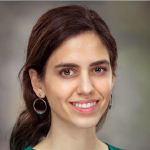
I am delighted to have been selected as the inaugural ACEP Now resident fellow. As the incoming fellow, I would like to introduce myself and describe my vision for the fellowship.
Explore This Issue
ACEP Now: Vol 40 – No 07 – July 2021Currently, I am a third-year resident at the University of Texas Health Science Center at San Antonio. My interests specific to emergency medicine include toxicology, prehospital care, psychiatric emergencies and disorders, and addiction medicine. Complementing my experience as an emergency medicine resident, I have a background in research and medical editing that I am eager to bring to this new position. Outside of work, my interests and hobbies include playing the accordion, reading medieval literature, and finding the best hiking trails throughout rural Texas.
Medicine and the humanities, literature in particular, have long been passions of mine. Their intersection in my life has driven me throughout my education and career. As an undergraduate, I majored in literature and spent a year studying English literature at the University of Oxford. At the same time, I was involved in neuroscience research, linguistics, and its relationship to neural processing of language. That work invoked and inspired fundamental questions around interiority (the focus on inner life and identity), subjectivity, and individual experience. This liberal arts perspective formed the core of my perspective.
Enriching Medicine with the Humanities
Humanities and sciences are often taught as distinct and unconnected fields of study. But as the long history of physician-authors demonstrates, the art and practice of medicine can be enriched by literary exploration. For doctors who also write, illness is more than a literary device; illness and the treatment of illness are parts of a meditation on what it means to be human. History has seen physician-authors including Sir Arthur Conan Doyle, author of the Sherlock Holmes series; American poet William Carlos Williams; and Khaled Hosseini, author of The Kite Runner. Even James Joyce, the famous Irish modernist, briefly studied medicine. The complex and varied relationships between these authors and the field of medicine are too vast to capture, but I will quote Williams, who viewed writing about his experiences in medicine as a self-reflective experience: “There’s nothing like a difficult patient to show us ourselves…I would learn so much on my rounds, or making home visits…I heard words, lines, saw people and places—and used it all in my writing.” He saw the process as a “descent into [him]self.”1
Writing about medicine can both examine the exterior experience and probe into the interior. As emergency physicians, the use of and reflection on personal narrative can help us to incorporate our complex and challenging experiences into our sense of self, to articulate a sense of purpose, and to manage the inevitable difficulties of our work.
I plan to incorporate elements of this perspective into the empirical, scientific discipline of medicine through an examination of both the exterior and the interior human experience, specifically through reflections provided by emergency medicine residents. In unprecedented times where emergency medicine residents are completing their training during a pandemic, the voices of emergency medicine residents are of particular importance. As residents, we are part of the future of the profession, and our reflections during the time of COVID are of both personal and professional significance.
I would like to use this introduction as a space to invite residents to submit to the “Resident Voice” column of ACEP Now. I hope you will join me as I seek to incorporate the intersection of the humanities and medicine into this column. I also would like to encourage creativity in topics and themes. Please feel free to submit writing proposals or pieces to the email borelli@uthscsa.edu and follow the Twitter account @ACEPNow.
I am enthusiastic to be selected for this role, and I look forward to resident submissions for the “Resident Voice” column and the introspection that I hope these works will inspire.
 Dr. Borelli is an emergency medicine resident at the University of Texas Health Science Center at San Antonio and ACEP Now resident fellow.
Dr. Borelli is an emergency medicine resident at the University of Texas Health Science Center at San Antonio and ACEP Now resident fellow.
Reference
1. Williams WC. The Doctor Stories. 14th ed. New York, NY: New Directions Publishing; 1984:xiii.
Pages: 1 2 | Multi-Page



No Responses to “New Resident Fellow Brings a Literary Perspective to Medicine”